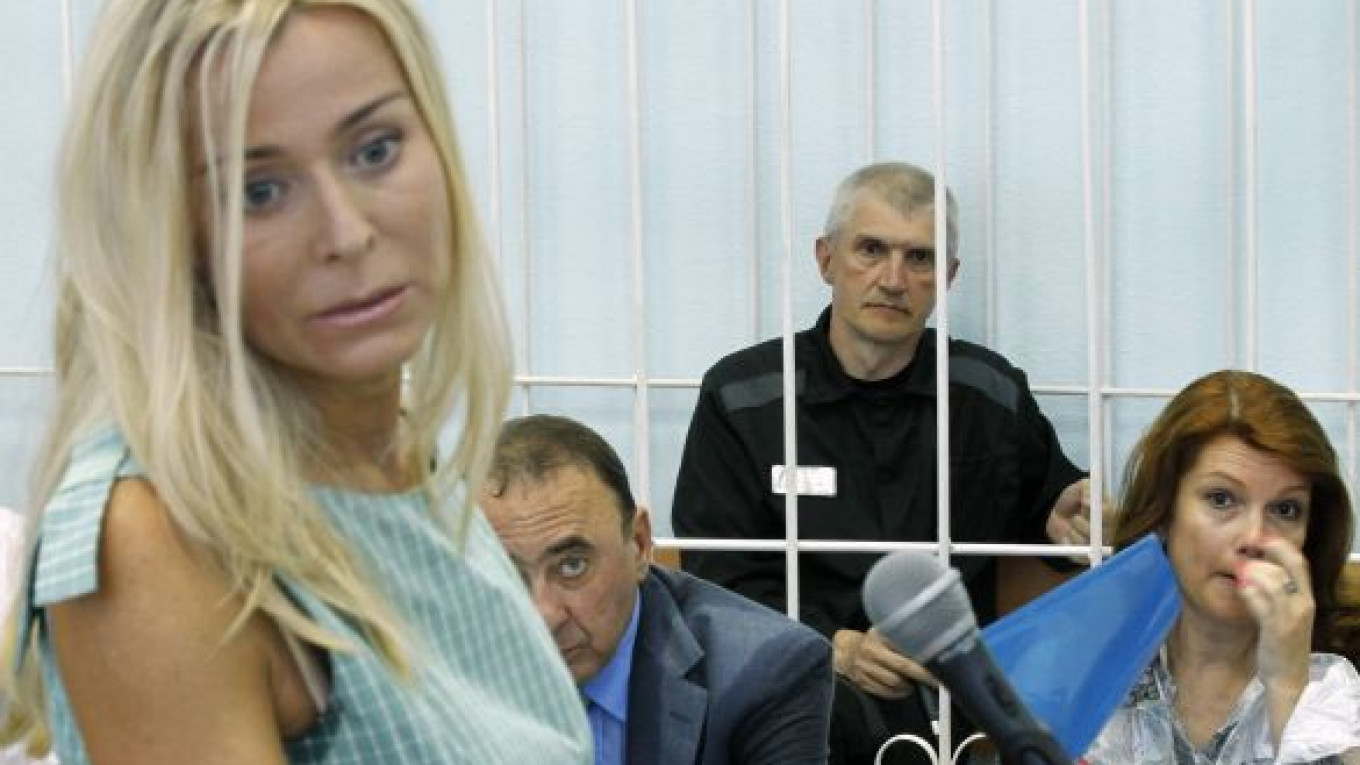The wife of jailed former Yukos co-owner Platon Lebedev made an emotional plea for his release on parole Tuesday, reading in court a letter from their 9-year-old daughter, Masha, who was just a year old when he was arrested.
But prison officials recommended that Lebedev stay behind bars for violating the rules — he allegedly lost a pair of prison-issued pants and slippers.
Hearings into Lebedev's parole request opened Tuesday in a district court in the Arkhangelsk region town of Velsk, where he arrived several weeks ago after a Moscow court upheld a December conviction of him and former Yukos CEO Mikhail Khodorkovsky in a second trial, Interfax reported.
Masha Lebedeva wrote in her letter that she "cries almost every day and cannot sleep at night, thinking about Daddy," Lebedev's wife, Maria Cheplagina, told the court, Gazeta.ru .
Lebedev listened from an iron-barred defendant's cage as his wife stood in front of a microphone.
The judge did not comment on the letter, but women in the courtroom sobbed as she read, the report said.
Factors influencing the parole request include a convict's references and employment prospects. Novaya Gazeta editor Dmitry Muratov said in the courtroom that Lebedev would not need to worry about a job because he would be hired as an economic columnist for the newspaper if released.
The detention center where Lebedev was held in Moscow, Matrosskaya Tishina, issued Lebedev a positive reference.
But officials at his current prison opposed his release, citing the loss of prison property and an undocumented oral reprimand for unspecified misbehavior.
Lebedev, 54, has been jailed since 2003 on tax and fraud charges that supporters call punishment from Vladimir Putin's Kremlin for Khodorkovsky's political and business ambitions. Sentences for both were extended until 2016 at the second trial.
In May, Amnesty International declared the two men "prisoners of conscience."
The parole hearing is to conclude Wednesday.
A Message from The Moscow Times:
Dear readers,
We are facing unprecedented challenges. Russia's Prosecutor General's Office has designated The Moscow Times as an "undesirable" organization, criminalizing our work and putting our staff at risk of prosecution. This follows our earlier unjust labeling as a "foreign agent."
These actions are direct attempts to silence independent journalism in Russia. The authorities claim our work "discredits the decisions of the Russian leadership." We see things differently: we strive to provide accurate, unbiased reporting on Russia.
We, the journalists of The Moscow Times, refuse to be silenced. But to continue our work, we need your help.
Your support, no matter how small, makes a world of difference. If you can, please support us monthly starting from just $2. It's quick to set up, and every contribution makes a significant impact.
By supporting The Moscow Times, you're defending open, independent journalism in the face of repression. Thank you for standing with us.
Remind me later.






